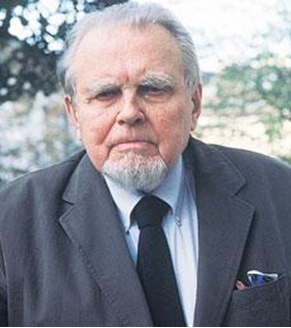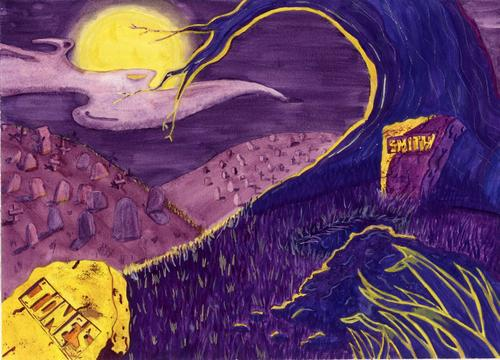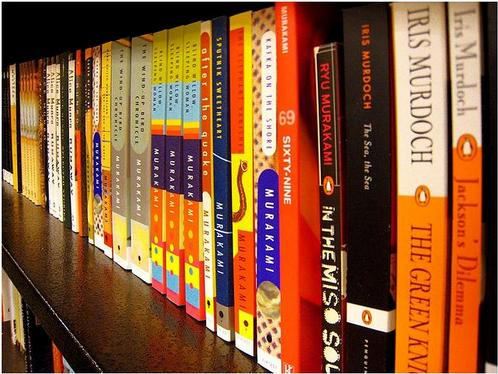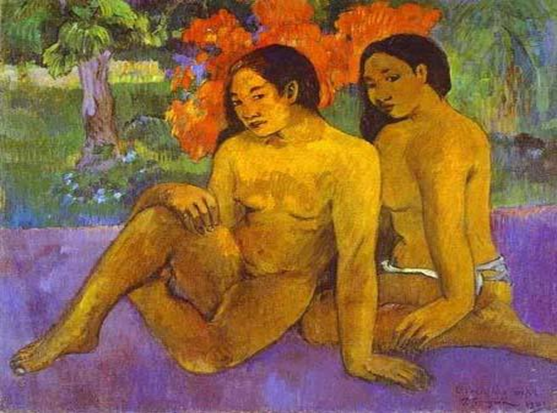|
 This year the world is celebrating the centennial of the great Polish poet Czeslaw Milosz. He was a poet whose extraordinary life spanned 93 years, five countries, two continents, most of the 20th century and the first years of the 21st. Born in the Grand Duchy of Lithuania-Poland, he spent his early childhood in Russia, then studied in Vilnius and Poland, before suffering the war in Warsaw and emigrating to Paris in 1951. In 1960 he immigrated to USA on a professorship at the Slavic department of Studies of University of California, Berkeley and worked there virtually in anonymity till he was bestowed the Nobel Prize for Literature in 1980. He lived more than 30 years in a modest house overlooking San Francisco Bay and in 1993 he returned to Krakow in Poland to live there till his death on August 14, 2004. This year the world is celebrating the centennial of the great Polish poet Czeslaw Milosz. He was a poet whose extraordinary life spanned 93 years, five countries, two continents, most of the 20th century and the first years of the 21st. Born in the Grand Duchy of Lithuania-Poland, he spent his early childhood in Russia, then studied in Vilnius and Poland, before suffering the war in Warsaw and emigrating to Paris in 1951. In 1960 he immigrated to USA on a professorship at the Slavic department of Studies of University of California, Berkeley and worked there virtually in anonymity till he was bestowed the Nobel Prize for Literature in 1980. He lived more than 30 years in a modest house overlooking San Francisco Bay and in 1993 he returned to Krakow in Poland to live there till his death on August 14, 2004.
The magnitude of Czeslaw Milosz as an eminent poet and essayist is almost unimaginable. He was a hero of the history of his time and a hero of the literature of his time. Though a deep Catholic, Milosz's spiritual intensity never interfered with his historical clarity. His inner freedom seems never to have failed him. His life and his work justified, in all their complexities, the most elementary belief in the power of the truth. He had the face of a hawk and the heart of a dove. In a way he was as tough as time.
Adam Zagajewski, Poland's greatest living poet, mentioned during a recent memorial lecture (Available in YouTube) that Milosz was perhaps the only poet of 20th century who tried to grasp the totality of the world. If you had a chance to read his magnificent collected poetry, you will know that, like Whitman, Milosz was a universal poet who succeeded in grasping the totality of all human experiences. As Milosz speaks in a poem -"More clever than you, I learned my century, pretending I knew a method for forgetting pain."
Milosz was a poet who was in command of his medium. He knew what poetry should do and what poetry should refrain from. One of his greatest achievements is a poem titled- "A Treatise on Poetry", a sequence looking back on these events from the mid-50s. The short opening lyric calls for a clear direct style of image and thought, a poetry that can shoulder the responsibilities of its time -
"One clear stanza can take more weight
Than a whole wagon of elaborate prose".
He was also a poet of strong moral consciousness. He became a leader among Polish-language modernists in the 1930s, then witnessed the Nazi destruction of Warsaw. His epochal early poetry described the horrors of war and the enduring power of joy: "I have seen the fall of States and the perdition of tribes”. Reflecting on the reaction of Polish Poetry to the experience of World War II , Milosz poses the basic question : “The act of writing a poem is an act of faith: yet if the screams of the tortured are audible in the poet’s room, is not his activity an offense to human suffering? From this stand point, every artistic creation becomes morally ambiguous. Thankfully Milosz himself has given best expression of this dilemma in his Nobel Prize speech which I quote below.
“Reality calls for a name, for words, but it is unbearable and if it is touched, if it draws very close, the poet's mouth cannot even utter a complaint of Job: all art proves to be nothing compared with action. Yet, to embrace reality in such a manner that it is preserved in all its old tangle of good and evil, of despair and hope, is possible only thanks to a distance, only by soaring above it - but this in turn seems then a moral treason”.
Let us now examine some of the poems of Milosz that illustrates the craft of his poetry.
Milosz’s poems are based on observations and it gyrates like a moving camera, shifting constantly from what is near to what is distant. One can see a conscious clash between the desire to catch the fleeting moment and the feeling of absence of a constant reference point. The concreteness of Milosz’s imagination is evident in this poem, which has been one of my favorite Milosz poems.
Encounter
Translation: Czeslaw Milosz & Lillian Vallee

We were riding through frozen fields in a wagon at dawn.
A red wing rose in the darkness.
And suddenly a hare ran across the road.
One of us pointed to it with his hand.
That was long ago. Today neither of them is alive,
Not the hare, nor the man who made the gesture.
O my love, where are they, where are they going
The flash of a hand, streak of movement, rustle of pebbles.
I ask not out of sorrow, but in wonder.
In ‘Encounter’ Milosz is dealing with memory and events separated by a great gap in time – or perhaps more correctly, the one event looked at twice from different times. And this event is not so much one moment but one moment interrupted by a happening – the quiet monotonous motion of the wagon and the thoughts of those travelling on it jolted as a hare flashes across the road in front of them.
Just as the hare’s sudden presence interrupts the travellers’ awareness, the poem interrupts the awareness of the reader by its sudden shift in time: “That was long ago.”Milosz finds a kind of mystery, which cannot be understood, but hides behind such moments. It is as though the hare has become a symbol for the unexpected and ultimately life enforcing nature of existence. He makes use of simple and direct style and it is incredibly how far he takes the reader in such a short interval. The last stanza is like a lightning stroke and has the revelatory power of supreme utterance.
Milosz’s poetry has been called polyphonic and as he says-“I have always been full of voices speaking; in a way I consider myself an instrument, a medium”. Let us consider a famous poem titled “Dedication” . “Dedication” was written in Warsaw in 1945 – which is to say after more than six years of Nazi occupation, after the bloody suppression of the Warsaw uprising, the subsequent deportation of the city’s more than one million inhabitants, the destruction of all its remaining buildings, and its liberation by the Soviet army. Although Milosz never literally took up arms against the Nazis, he did endure narrow escapes at the start of the occupation, and his home, all of his books, and many of his early manuscripts were destroyed by German shelling.
Here the poet is addressing a dead young poet, a man who apparently died during the Nazi resistance. One can sense a bit of hubris or arrogance when the poet addresses the dead poet and says –“What strengthened me, for you was lethal”. He is speaking to someone frustratingly beyond the reach of his words, about whom he feels guilt for not saving: “I swear, there is in me no wizardry of words. / I speak to you with silence like a cloud or a tree”—a lie, of course, because this poem is written in words. They, in fact, are his millet seeds to propitiate the dead.
Dedication
Translation: by Czeslaw Milosz

You whom I could not save
Listen to me.
Try to understand this simple speech as I would be ashamed of another.
I swear, there is in me no wizardry of words.
I speak to you with silence like a cloud or a tree.
What strengthened me, for you was lethal.
You mixed up farewell to an epoch with the beginning of a new one,
Inspiration of hatred with lyrical beauty,
Blind force with accomplished shape.
Here is the valley of shallow Polish rivers. And an immense bridge
Going into white fog. Here is a broken city,
And the wind throws the screams of gulls on your grave
When I am talking with you.
What is poetry which does not save
Nations or people?
A connivance with official lies,
A song of drunkards whose throats will be cut in a moment,
Readings for sophomore girls.
That I wanted good poetry without knowing it,
That I discovered, late, its salutary aim,
In this and only this I find salvation.
As I mentioned earlier, Milosz was born to a family of Polish-speaking landed gentry in Lithuania, a group that related to Poland rather as the Anglo-Irish gentry did to England. Over a lifetime, memories of the old manor grounds and surrounding woods provided him with his own vision of the land of youth. He attended university in Vilnius and as a young man moved to Warsaw, where he survived the war, working in the underground resistance, publishing anti-Nazi poems. In the bleakest hours of World War II, Milosz produced a masterpiece called 'The World,' a sequence of 20 'naive' poems 'written in the style of school primers,' in which the rudiments of a child's world -- the road, the gate, the porch, the dining room, the stairs, the poppies, the peonies -- are portrayed with the indomitability of genuine innocence. Against the horror, he pitted pastoral! And all the while he was working with the Polish underground. There were two ways, then, of resisting evil: engagement and disengagement; attachment and detachment; action against it and contemplation despite it. In his dark era, Milosz was the master of this complication, this salvation, of consciousness. The following poem titled “Love” is an excerpt from “The World”.
Love
Translation: by Czeslaw Milosz

Love means to learn to look at yourself
The way one looks at distant things
For you are only one thing among many.
And whoever sees that way heals his heart,
Without knowing it, from various ills—
A bird and a tree say to him: Friend.
Then he wants to use himself and things
So that they stand in the glow of ripeness.
It doesn’t matter whether he knows what he serves:
Who serves best doesn’t always understand.
Milosz was well familiar with Indian philosophy and no wonder he reiterates that that to love, to be genuinely loving, we need to drop the attachment to the self as special; we need to see ourselves from a detached perspective, humbly acknowledging that we are only “one thing among many.” Milosz further claims that seeing oneself with detachment is a way to heal one’s heart of many grief .After all, our troubles are only part of that sea of troubles that life is for everyone.
It’s only after we have achieved this detachment, this humility, that we are capable of loving kindness and selfless service. Furthermore, it’s not necessary to know what it is we are serving. In fact, the person who understands is not the one who serves best, Milosz claims. When we aren’t self-absorbed, we feel united with others and with nature - “A bird and a tree say to him: Friend.”
The last poem I discuss here is his about his faith in books. I really love this poem as the physicality of books around me is a feeling that I adore. Many have become individualized over the years, filled with dog-ears and memories; old postcards and peacock feathers stuck in between chapters as bookmarks; an old photo preserved forever between the blank front pages; notes scribbled in margins. My life and the author's life have intersected here. In a world where whole libraries can be contained in a tiny 8" x 12" piece of plastic, this poem is an assertion of a book as a bodily book. Literature has survived changing forms before. But there is something so beautiful, so real, about books in a large, clunky form that I wonder what this new change will mean for the way that literature is read and understood
And Yet Books
Translation: by Czeslaw Milosz

And yet the books will be there on the shelves, separate beings,
That appeared once, still wet
As shining chestnuts under a tree in autumn,
And, touched, coddled, began to live
In spite of fires on the horizon, castles blown up,
Tribes on the march, planets in motion.
“We are,” they said, even as their pages
Were being torn out, or a buzzing flame
Licked away their letters. So much more durable
Than we are, whose frail warmth
Cools down with memory, disperses, perishes.
I imagine the earth when I am no more:
Nothing happens, no loss, it’s still a strange pageant,
Women’s dresses, dewy lilacs, a song in the valley.
Yet the books will be there on the shelves, well born,
Derived from people, but also from radiance, heights.
Though at times his poetry may seem hermetic and philosophical, he has also written poems that reflects his enduring human love for the sensual and spiritual. Here is a sample.
A Confession
Translation: by Czeslaw Milosz

My Lord, I loved strawberry jam
And the dark sweetness of a woman’s body.
Also well-chilled vodka, herring in olive oil,
Scents, of cinnamon, of cloves.
So what kind of prophet am I? Why should the spirit
Have visited such a man? Many others
Were justly called, and trustworthy.
Who would have trusted me? For they saw
How I empty glasses, throw myself on food,
And glance greedily at the waitress’s neck.
Flawed and aware of it. Desiring greatness,
Able to recognise greatness wherever it is,
And yet not quite, only in part, clairvoyant,
I knew what was left for smaller men like me:
A feast of brief hopes, a rally of the proud,
A tournament of hunchbacks, literature.
In an interview Milosz says about his approach to crafting poems - “It is shedding skins, which means abandoning old forms and assumptions. I feel this is what makes writing exciting. My poetry is always a search for a more spacious form. I have always been in conflict with those theories of poetry that concentrate on the aesthetic object.”
Thousands lined the streets of Krakow to watch the funeral procession of poet when he died in 2004. His body was entombed at the historic Skalka Roman Catholic Church, one of the last to be commemorated there. Robert Hass, American poet and his translator, who attended the funeral found the whole church and streets heaped with white flowers of Lithuanian summer to mark the transition of the great poet.
There is a story that Czeslaw Milosz, on a return visit to his birthplace in Lithuania some 50 years after he had left, walked up to an oak tree and embraced it. An image of the return of the native, of course, but also an image of someone drawing strength – the psychic, moral and physical strength of a great poet – from his home ground.
To conclude, as a modern poet, Milosz discharged his obligations to his age and his obligations to his soul with the same diligence and the same depth. He had the rare gift of knowing how to be at once troubled and unperturbed. The stability of his mind, its preternatural composure, was one of the great sanctuaries of the 20th century, a prophecy of the eventual emancipation. When light was needed, he was light; when stone was needed, he was stone. He was someone who lived by the haiku of Issa - “We walk on the roof of Hell / gazing at flowers”
Milosz once wrote: "The child who dwells inside us trusts that there are wise men somewhere who know the truth." At this centenary moment, he himself has become one of those wise men.
References:
New and Collected Poems : 1931-2001
Czeslaw Milosz, The Art of Poetry No. 70: The Paris Review
Czeslaw Milosz, 1911-2004: The New York Times: Sept 12, 2004
Seamus Heaney on Czeslaw Milosz's centenary: Guardian 7th April 2011 |